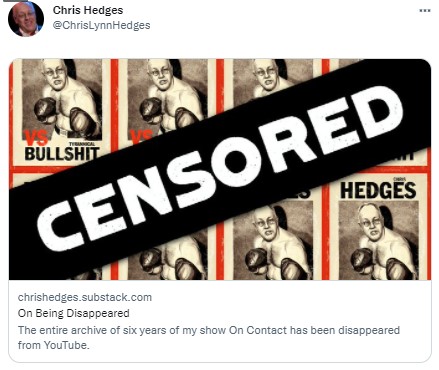Legislation Proposed to Clarify the Rights of Parents of Gender Dysphoric Children Attending Public Schools
Attorney Luke Berg is asking state legislatures to clarify the rights of parents, especially in cases where public schools are secretly affirming a child's transition while at school. Here is some background and the key points Berg is proposing:
In the past few years, school districts nationwide have quietly adopted policies requiring staff to facilitate and “affirm” gender identity transitions at school without parental notice or consent—and even in secret from parents. Certain groups are telling school boards and administrators that excluding parents from the decision about whether staff will treat their child as the opposite sex is not only best practice but required by law. Neither is true. Such policies fly in the face of how schools treat every other decision of similar significance.
From a legal perspective, these policies violate parents’ constitutional rights to raise their children. They also conflict with science. Many professionals in the field believe that transitioning at a young age can become self-reinforcing and do long-term harm. And these policies divide children against parents, communicating to kids that their parents’ decisions should not be respected.
Key Points
• Schools have a long-standing tradition and legal obligation to inform parents of their children’s medical and behavioral issues and to honor their decisions about what’s best for their kids. Yet, prompted by a well-organized lobby, many school districts have decided that minor students can change gender identity at school without any parental involvement.
• A gender identity transition is a major event in a child’s life. It can have long-term effects on a child’s psyche and sense of identity, and, as a result, many mental health professionals recommend a more cautious approach, first helping children process what they are feeling and why.
• The increasingly common practice of rushing to “affirm”and facilitate a transition at school without informing parents, and even refusing to follow their wishes, runs directly against a strong body of case law recognizing parents’ constitutional right to raise their children.
• State lawmakers can and should clarify that school districts must defer to parents when children struggle with gender identity issues.
. . .
Even if political pressure fails, these policies are vulnerable to lawsuits. As discussed briefly above, a long line of cases from the United States Supreme Court holds that parents have a fundamental right, under the 14th Amendment, to “direct the upbringing and education of children under their control.” This is “perhaps the oldest of the fundamental liberty interests recognized by” the Court.
. . .
To be clear, such a bill would not, as some will likely argue, require teachers to immediately “out” to parents any student who has questions about these issues and confides in a teacher (though teachers must be permitted to communicate openly with parents about this, because this can be a serious mental health issue). But if a student wants to take the major step to transition, asking all teach- ers and staff to treat him or her as the opposite sex while at school, that should require parental per- mission, just as taking medication at school does, because—as noted above—social affirmation is a medical intervention. Teachers can still be a safe space for students to process these issues while gently explaining to students who want to transition that this is a big decision and that they need to involve their parents if they want to do so at school with the support of staff.
No parents should go through what Jay Keck58 went through, suddenly discovering one day that his daughter had changed gender identity at school, with the school’s active participation and affirmation but without any notice to him. No parents should go through what the Kettle Moraine parents went through, being forced to withdraw their daughter from public school just to protect her and preserve their parental role.
A bill to prevent this should find broad support among parents and constituents. Most parents are outraged when they learn that school districts are excluding parents from this major decision. Even parents who ultimately would allow an immediate transition should want and expect to be involved. Those who support these policies should be forced to defend them publicly and explain why they believe it’s ever appropriate to hide such a serious issue from parents or to subvert the parents’ decision about what’s best for their child. These poli- cies have been implemented quietly for a reason. A public debate that brings them to light may be all that’s needed to start eliminating them.

